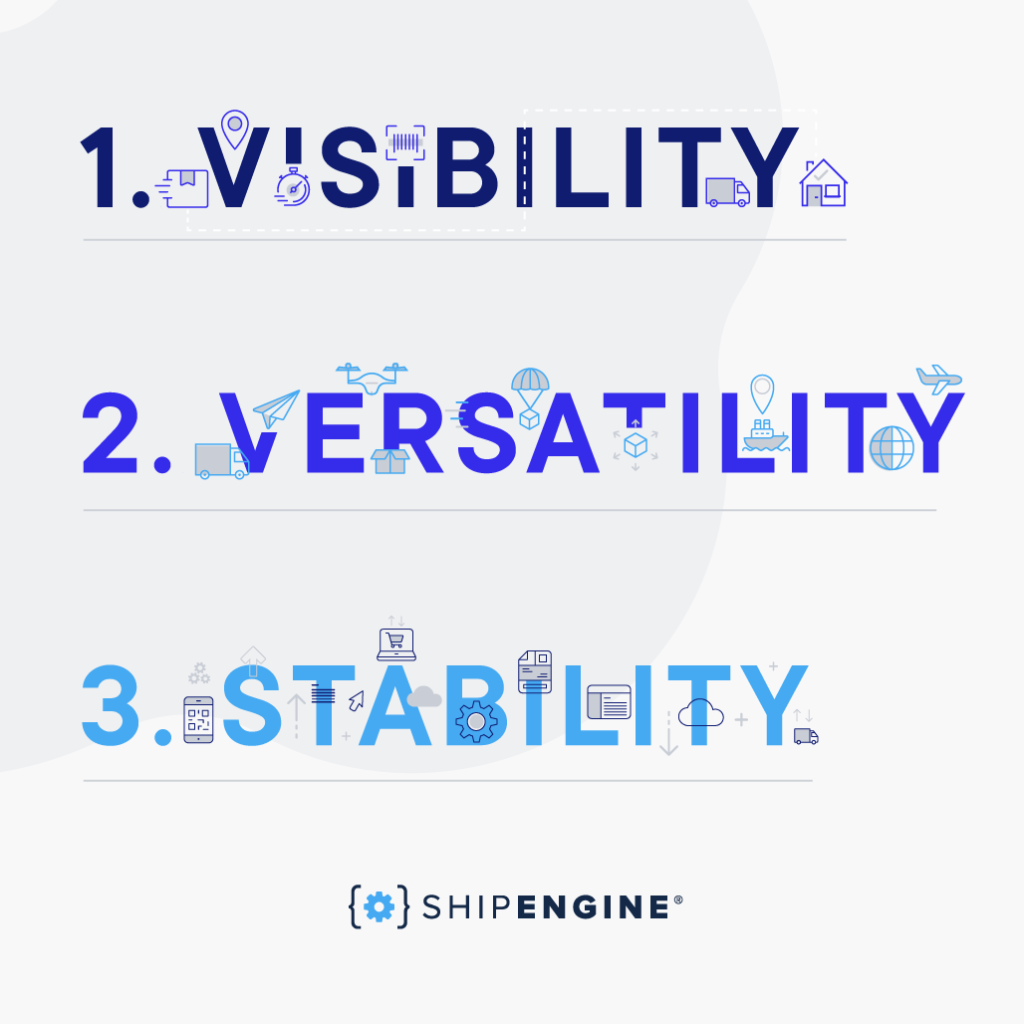
In recent years, many retailers have had to adapt to the rapidly changing distribution landscape. Among the different phrases and buzzwords that have become relevant is“omnichannel distribution.”
Omnichannel distribution is how a company is able to treat its inventory as fully available (regardless of the channel) from any of its warehouses or physical locations. This flexibility allows for the distribution of products through multiple avenues (ecommerce, wholesale, store replenishment, returns, etc.) without the need for disparate specialized fulfillment facilities or workforces. Any one of a corporation’s retail locations should have the ability to respond to such needs.
As Bob Trebilcock points out in his article on Supply Chain Management Review, software remains key to this focus on supply chains. A company’s tech stack is what defines its ability to meet new consumer challenges and demands in the 21st century. Given the importance of the tech stack, it’s crucial that companies select or develop software that delivers the visibility, versatility, and stability needed to handle and respond to developments in their supply chains in real time.
With these new norms set in place, it’s hardly surprising that not just retailers, but also WMS or ERP systems are scrambling to incorporate modules that afford such functionality in order to carve out a share in today’s omnichannel-reliant industry. Here’s a closer look at the three characteristics listed above — visibility, versatility and stability — and their importance in omnichannel distribution.

1. Tracking Visibility
Visibility is paramount to the successful implementation of an omnichannel strategy. Without reliable shipment tracking, gaining the right amount of visibility will be impossible. Reliable shipment tracking allows you to provide greater visibility to your customers, enhancing their experience, as well as to access greater internal insight into inventory movements.
Failure to properly track shipments can also lead to both internal and external complications: a lack of supply chain visibility prevents quick responses to delays or internal auditing, while also potentially damaging the customer relationship if status updates are vague, incorrect or out of date.
2. Versatility to Consumer and Market Demands
The ability to adapt to different consumer and supply chain requirements is essential to an effective omnichannel strategy. Thus, carrier diversity is vital to ensure that an operation has the tools needed to select the most efficient and cost-effective shipping option — whether that be services through regional, domestic, freight or international carriers. At ShipEngine, we have worked with companies that realized they were losing millions each year in potential rate savings by relying on a single carrier.
At ShipEngine, we have worked with companies that realized they were losing millions each year in potential savings by relying on a single carrier.”
In addition, the rise of what is commonly referred to as the “Amazon effect” has led to a different kind of customer expectation in today’s ecommerce distribution industry. Customers have become accustomed to almost instantaneous fulfillment, and companies that are unable to provide the same level of service often find themselves losing market share. Carrier diversity helps rectify this issue by allowing for the efficient selection of the fastest delivery option. Without carrier diversity, ecommerce companies are left to select from a limited list of less-than-optimal carriers.
3. Five Nine Stability
Given the importance of software in today’s ecommerce distribution landscape, it stands to reason that the software itself cannot fail under heavy volume. Anything less than a 99.99% uptime could equate to thousands of dollars lost if your software fails — especially for larger enterprises. Put into perspective, 0.01% of downtime a year translates to a full hour of downtime for a supply chain network. If this were to happen on a high-volume day like Black Friday or Cyber Monday, a company could be looking at a catastrophic logistics disaster.
Software interfaces can range from simple label generation tools to complex logistical management systems, but the cores of all systems remain singularly reliant on how well they connect to the API endpoints offered by each carrier. The number of features any software offers will matter little if that software is unable to communicate effectively with the source of truth that powers every move it makes.
The Shipping API That Powers Your Omnichannel Efforts
As one of the world’s largest carrier API libraries that also powers enterprises like Facebook, SPS Commerce, and 3PL Central, ShipEngine is the be-all and end-all of shipping API solutions. With 100-plus carrier integrations planned for 2021 and the capability to process billions of shipments a year, ShipEngine provides ecommerce brands and platforms with the ability to fuel their omnichannel implementation efforts.
Are you ready to perfect an omnichannel strategy? Contact us to learn more about how we can help revolutionize your supply chain operations.



Leave a Reply